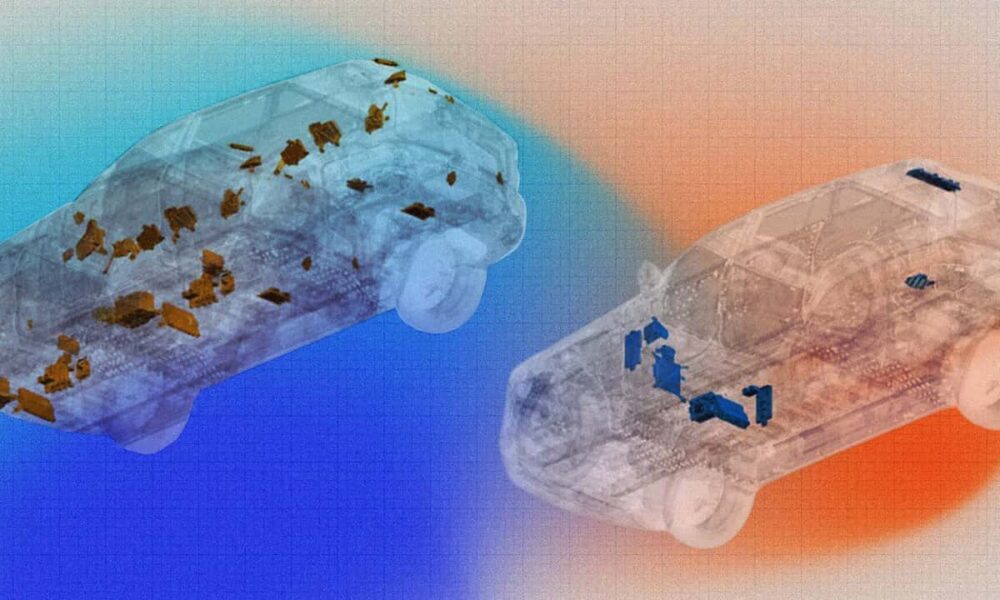UPDATE: General Motors (GM) just announced a revolutionary shift in automotive technology that promises to transform both gas-powered vehicles and electric cars. This groundbreaking initiative, set to launch with the Cadillac Escalade IQ in 2028, will integrate a centralized compute architecture that enhances vehicle functionality and reduces complexity, all while maintaining performance across powertrains.
At the GM Forward tech event in New York City yesterday, GM’s senior vice president of Software and Services Engineering, David Richardson, confirmed that the new system will be “propulsion-agnostic,” enabling it to operate efficiently in both electric and gas vehicles. This means consumers can expect a significant upgrade in features, efficiency, and connectivity, regardless of the type of engine their vehicle uses.
The urgency of this development cannot be overstated. As the automotive industry grapples with slowing EV sales and the expiration of tax credits, GM is looking to innovate within its gas-powered lineup while also preparing for a future dominated by electric vehicles. The centralized compute architecture aims to streamline operations by reducing the number of vehicle modules, consolidating them into fewer, more efficient units. This approach mirrors the modern EV strategy, which emphasizes fewer parts, less maintenance, and a smoother user experience.
According to Gary Cygan, director of platform engineering at GM, this innovative architecture will replace traditional fuse boxes with advanced aggregators that manage various vehicle functions. This transition not only simplifies vehicle design but also allows for quicker software updates and the addition of new features over time. Cygan stated, “We’ve moved away from standard fuse boxes. The aggregators handle those functions instead, leading to significant capability increases.”
This transformative technology will not only enhance the user experience but also reduce production costs. GM’s approach will enable the carmaker to offer lower material costs while adding new capabilities. However, the impact on consumer pricing remains uncertain, as GM balances cost reductions with the incorporation of advanced technologies.
The centralized compute architecture is designed to support a diverse range of vehicles globally, from compact gas cars in Latin America to full-size electric SUVs. This adaptability is crucial in a market where consumer preferences are shifting, and the demand for high-tech features continues to rise.
Yet, challenges remain. GM must navigate the complexities of cooling systems for internal combustion engines, ensuring that the new technology operates effectively within existing vehicle frameworks. As Cygan noted, “Figuring out how to do that on ICE is a challenge.”
The implications of this new architecture extend beyond just hardware improvements. GM envisions a future where cars are continuously updated, delivering up to 10 times more software updates than previous systems. This leap forward in technology will also pave the way for advanced features such as self-driving capabilities and enhanced connectivity, providing a seamless experience for drivers.
As GM positions itself for the future, it’s clear that even as gas-powered cars remain a staple for many consumers, the integration of cutting-edge technology will redefine what these vehicles can offer. The promise of a vehicle that “can think and react as one” is not just a lofty goal—it’s a tangible reality that consumers can expect to see in their cars soon.
Stay tuned for more updates as GM continues to develop this innovative technology, signaling a new era for both gas-powered and electric vehicles. The automotive landscape is changing rapidly, and GM is at the forefront of this evolution.







